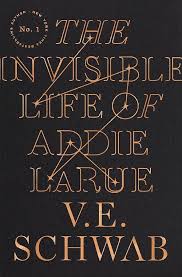Chapter X
byChapter X takes us to the city of Paris on July 29, 1719, a time and place where Addie, the immortal woman cursed by a devilish pact, finds herself indulging in a rare moment of pleasure. In the opulent and hidden marquis’s city house, she embraces the indulgence of luxuries she would never otherwise taste. She savors the rich chocolate, something she rarely allows herself to indulge in, and enjoys the exquisite surroundings of the house that symbolize the sharp contrast between her humble existence and the grandiosity of the world around her. The house itself, hidden from public view and immersed in wealth, offers her a secret space away from her wanderings, a place where she can briefly escape from her never-ending struggle with her own curse. It’s here, in the privacy of this space, that Addie finds a fleeting sense of freedom, and for a brief moment, she is able to experience the life she has always dreamed of but can never claim as her own.
As she relishes in her solitude, an unexpected presence interrupts Addie’s rare indulgence—Luc, the godlike entity who gifted her immortality in exchange for a curse that makes her perpetually forgotten by those she meets. Luc’s reappearance after four long years is laden with a tension that only the two of them can truly understand. Their relationship, defined by manipulation, pain, and the constant clash of their opposing wills, is a delicate balance of defiance and begrudging acceptance. Luc, ever the master of his own reality, proposes an evening dinner, a setting where he weaves the illusion of normalcy—a fleeting moment of comfort in their otherwise twisted relationship. For Addie, however, this offer represents a complicated choice: to accept the illusion or continue fighting against the binding strings of the curse that controls her existence.
Dinner in Luc’s company is not just an ordinary meal, but a grandiose spectacle, with servants moving under the influence of Luc’s control, providing a feast that feels more like a stage for their personal performance than a genuine act of hospitality. The opulent surroundings of the marquis’s house, filled with sumptuous foods and lavish settings, create a surreal atmosphere that makes the evening feel both disconnected from reality and yet intimately tied to the deep emotions that pass between Addie and Luc. Their conversation, full of barbs and unspoken emotions, serves as a battleground for the power dynamic that constantly shifts between them. Addie struggles with her resentment and anger toward Luc, but there’s also an undeniable sense of longing—a desire for connection, something she’s been deprived of for centuries. She knows that she’s living in a world that seems to have no place for her, trapped in the void of being forgotten, and her conversation with Luc only serves to reinforce her disillusionment with the life that she’s been condemned to live.
Throughout their interaction, Addie becomes increasingly aware of the vast gap between her desires and reality. The conversation takes a turn when Addie dares to ask Luc his true name, a question that speaks to her constant search for something real in her existence. Luc’s evasive response only deepens the mystery of his intentions and who he truly is, further complicating the relationship between them. His reluctance to reveal anything of himself highlights the power dynamics at play and the fact that he remains as much a mystery to Addie as ever. For Addie, this interaction with Luc reinforces the complexity of their relationship—a relationship that is built on power, manipulation, and a desperate search for something that feels authentic and human.
As the night progresses, Addie is left to grapple with her conflicting emotions and the inescapable truth that she cannot escape the life she has chosen. Her desire for autonomy, for a life free from the chains of her curse, seems ever more unattainable. The grand backdrop of the marquis’s house and the sumptuous dinner served only reinforce the loneliness she feels inside, a reminder of the price she paid for immortality. The chapter portrays Addie’s unending struggle to retain her sense of self and humanity while locked in a world that constantly challenges her existence. Despite the grandeur and indulgence she experiences, the absence of true connection, the inability to ever truly be seen or remembered by those around her, is a constant, haunting reminder of the cost of the curse that binds her.
This chapter provides a poignant exploration of the complexities of memory, identity, and the human longing for connection, especially in a world where one is perpetually lost in the shadows of the past. Addie’s interaction with Luc highlights her deep-seated desire to be recognized and remembered, to be more than just an afterthought or a passing moment in someone’s life. It also raises important questions about the nature of power and control, the struggles inherent in navigating one’s identity in a world where every connection is fleeting, and the emotional weight of being eternally forgotten. The juxtaposition of opulence and internal conflict serves as a vivid reminder that, despite the external luxuries and the fleeting moments of indulgence, Addie’s true battle lies within, against a curse that no amount of material wealth or worldly pleasures can ever erase.


